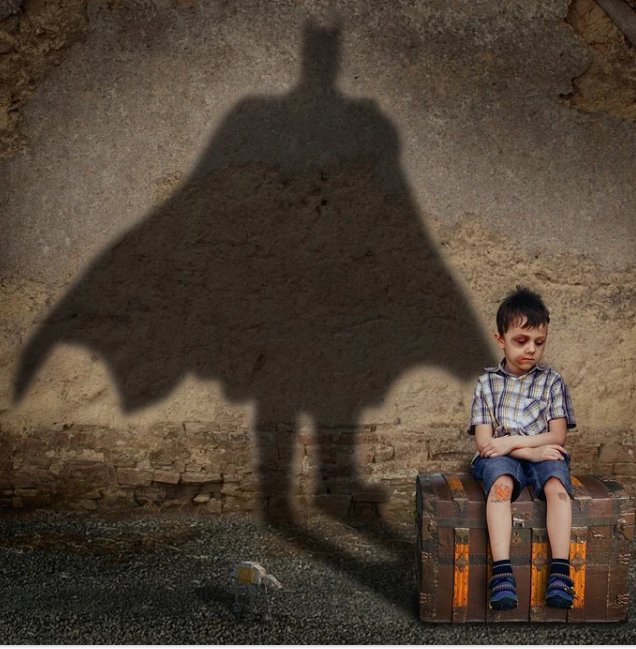Making pop culture references when doing apologetics or trying to explain any philosophical or scientific or theological point is always fun. You have a chance to get nerdy and talk about your favorite anime or comic book characters and illustrate your point at the same time. I always love it when I can reference Doctor Who in a blog post about The Moral Argument for God’s Existence (see “Daleks, Davros, and The Moral Argument”) or Pokemon in the context of the Fine-Tuning Argument (see “Shiny Pokemon and A Finely Tuned Universe”). It’s a lot of fun to use video game characters, popular movies, superheroes, etc. as a conduit to illustrate serious points.
With regards to the problem of evil, I have seen plenty of pop culture references regarding certain theodicies, specifically involving the most popular comic book movies of the past several years. In this blog post, we will look at some of them.
Doctor Strange and Feasible Worlds.
This one comes to you from Dr. Tim Stratton at FreeThinking Ministries. He talks about this illustration in his blog posts “Avengers: Infinity War & Possible Worlds” and “Avengers: Endgame, Middle Knowledge, and The Destruction Of The Problem Of Evil”.
In Avengers Infinity War, before Iron Man, Doctor Strange, Spider-Man, and Star Lord fight Thanos, Doctor Strange uses The Time Stone (one of the infinity stones Thanos was after) to look into time and evaluate over 14,000,000 “alternate futures”.
Stratton writes “Doctor Strange used the time stone to not merely look forward into the future to see what WILL happen, but to evaluate over 14,000,000 “alternate futures” (otherwise known as ‘possible worlds’) to see what “WOULD happen IF.” Doctor Strange is doing this because although it is not logically impossible for the Avengers to defeat Thanos… he wants to see if there is a possible world that could be actualized (what philosophers and theologians describe as a ‘feasible world’) in which the Avengers actually would defeat Thanos!
Doctor Strange explains that he examined over 14 million possible alternate futures, but out of the multi-millions of possible worlds surveyed, he knows of only one in which the good guys actually defeat Thanos in the end.”1
Most people think those are horrible odds. And I felt like I was punched in the gut at the end of the film, for rather than defeat Thanos, Thanos got all 6 of the Infinity Stones and used them to literally snap half of all life out of existence, including many of the super heros that had fought against him! From my vantage point, it seemd like evil had won. But Dr. Stratton was more observant than I, for he wrote ““[M]y guess was that these ‘alternate futures’ are not merely based on chance alone, and that Doctor Strange gained knowledge of how all of these super heroes and villains would freely choose in each of the millions and millions of possible worlds he examined. Possessing this knowledge of how these free super-powered persons would freely choose in each of these possible futures (similar to what theologians refer to as ‘middle knowledge’), I would venture that Strange freely chose himself — and did everything in his power — to make the possible world in which the good guys would win the actual world in which the good guys will win.”2
And it turns out that Stratton was right! In Avengers Endgame, the Avengers travel back in time to obtain the infinity stones (because Thanos had destroyed them immediately after using them), and used them to undo Thanos’ “snappening”, bringing everyone back to life. Thanos came through a portal they had opened in time from the past, and in the most epic battle in Super Hero cinematic history, The Avengers fought Thanos once again. Iron Man used the Infinity Stones to destroy Thanos and his entire army at the cost of his own life.
Strange actualized a world with terrible suffering for 5 years, but it was the only one where Thanos was eventually defeated and everyone was resurrected. Prior to Endgame’s ending, people might have blamed Strange for handing over the Time Stone, and said “If only he hadn’t given it over, half of all life wouldn’t have been snapped out by Thanos.” but that would be a premature judgment based on limited knowledge. Based on the knowledge they didn’t have, but Strange did. Doctor Strange was in a much better position to know whether or not it was improbable that he had a morally sufficient reason for handing The Time Stone over to Thanos. Everyone else simply had to have faith in him. Bruce Banner did. When The Ancient One asked Bruce why Strange would do such a thing when he visted her in the past, Bruce Banner responded “He must have had a reason.”
Tim Stratton wrote “Is Doctor Strange seen as evil for ensuring this possible future/world became the actual future/world? Not at all. In fact, the entire theater cheered for him and recognized him as the savior of the Marvel Universe! ….Even though Strange created a reality with so much pain and suffering, it is clear that he created the best feasible world after accounting for all the thoughts and actions of all the free agents — both heroes and villains.”3
Stratton goes on to ask why Doctor Strange should be seen as a hero for doing that, but God as a villain (or non-existent) for doing an extremely similar thing?
Some Atheists make the argument that it would have been better for God to create a world with no creatures at all than ones who suffer. To that, I would make a similar argument as I have in past discussions I’ve had with atheists about God creating a world in which people end up condemned to Hell. If it is true that this is the most optimal world God could actualize where all of His achieved goals are reached (1; there’s libertarian free will, and ergo love is possible, 2; whenever evil and suffering occurs, good comes out of it either quickly or eventually, 3; Jesus died for the sins of the world, 4; as a result of 3, eternal life is given to many, etc. etc. etc. etc. – there’s a lot of things God took into account when deciding which world to actualize), then why should evil doers (those who cause others to suffer) have a veto power over which world God is free to create? The end product as we know from the end of the book of Revelation is a Heaven-on-Earth scenario where we all live with God and each other in perfect harmony in unending uninterrupted happiness. There’s no evil or suffering anywhere, not even in Hell, for the damned will have been annihilated (so, no sinning-and-suffering ad infinitum as I used to think when I was a traditionalist). An infinite amount of time where billions of redeemed souls live in overwhelming joy seems to me to be worth a finite lifetime of sufferings caused by evil free agents. I look forward to being with Jesus for all eternity. I’m glad God decided to create me and my brothers.
This God-shouldn’t-have-created-anything argument might score debate points with one’s fellow atheists, but for those of us who have experienced the love of God and know what He has in store for us, we “consider that our present sufferings are not worth comparing with the glory that will be revealed in us.” (Romans 8:18)
We need to see the big picture. Every event that occurs affects other events. Even the greater goods that come about from evil cause other future events that still cause other future events. God providentially ordering a world of free creatures towards all of His intended goals is an extremely, overwhelmingly complex endeavor. Moreover, events are not temporal islands unto themselves. In the story of Joseph in Genesis 37-38, for example, which I talk about in my paper “Why The Problem Of Evil Is A Failed Argument For Atheism”, God wasn’t just concerned with saving many lives from starvation, but also of preserving the messianic bloodline, getting Israel into Egypt to prove His power to them by defeating their gods through the plagues and leading them into the promised land, and the entire history of The Bible which lead up to Jesus’ death and resurrection, which then lead to the commissioning of the disciples to spread the gospel, and so on.
We cannot fathom the entangled web of cause and effect and the impact that each of our lives and events has on others’ lives and on future events. Providentially ordering a world of free creatures is messy, and if it really was infeasible for God to actualize a world of free creatures where no one ever freely chooses wrong, then ordering said world will involve some suffering, but all of God’s goals will end up being accomplished in the end. From the Garden Of Eden to The New Heavens and Earth.
So, we are not in a position to say “A good God would not allow….[fill in the blank]” for we cannot judge how or whether X would or would not fit into God’s goals for this stage of the human existence; this pre-Revelation 21 stage.
It should be noted that there’s a disanalogy here. As analagous as the Doctor Strange example is, God does not have to “look into the future” to see what we would freely choose to do. God innately knows all things. There was never a state of affairs in which He lacked His middle knowledge. This is a common straw man of Molinism, so the disclaimer had to be made.
Another point of analogy that I find interesting is that Doctor Strange was himself a victim of the possible future he chose to actualize. He was one of the super heroes that disintegrated. However, after the other Avengers got the infinity stones, they “resurrected” Him. We should not forget that God did not actualize a world in which we alone suffer. God Himself also suffered as a result. He chose to enter into our world in the person of Jesus of Nazareth (John 1:1-3, John 1:14, Philippians 2:5-8) and He suffered the penalty for our sins on the cross so we could have atonement (1 Corinthians 15:3, Isaiah 53, 1 Peter 3:18). Jesus suffered and died at the hands of people who abused their free will. He was raised three days later. He subjected Himself to this brutal torture to keep us from having to do it.
I have seen some atheists compare God to Thanos! I believe they are wrong. God is more like Doctor Strange or even Iron Man, who laid their lives to keep the whole world from being destroyed.
Batman
Everyone knows Batman’s background story. A rich little boy is orphaned after his parents are shot in alley by a mugger. This horrible tragedy is what ultimately led him to craft the Batman persona and seek justice against criminals. He trained in martial arts, crafted weapons and gadgets, and fights as a vigilante in Gotham City.
It’s pretty obvious that had Bruce’s parent’s not been shot, he wouldn’t have freely chosen to become The Batman to fight the evil that made his city such a dangerous place to live. Who knows just how many evil villains would have succeeded in their evil plans had Batman not been there to stop them.
Let’s pretend that Batman isn’t a fictional character. Let’s pretend that this was all real for a moment. In this case, what happened to him wasn’t the result of a writer, but of real human free agents doing evil deeds. Here, we could ask “Why did God allow Thomas and Martha Wayne to be murdered?” The answer that God knew that if He intervened, Bruce would not become Batman, and Gotham city would be much worse off for it!
God can have morally sufficient reasons for permitting evil to occur. Good can come out of terrible suffering.
Wonder Woman and Total Depravity
There’s actually a book called Wonder Woman and Philosophy: The Amazonian Mystique. This is actually part of a series of books by Blackwell called Blackwell Philosophy and Pop Culture Series.
There’s an essay in this book titled “Wonder Woman, Guns, and The Problem Of Evil”, by Edwardo Perez. Edwardo Perez writes the following
“There have been many other questions and solutions and explanations proposed in the fields of religion and philosophy (along various argumentative trajectories, especially those that try to prove or disprove the existence of God) but nothing ever really seems satisfying. If we’re honest, the only conclusion we can draw with any certainty is that evil exists (it’s just too abundant a thing to ignore or dismiss).
This is what makes Wonder Woman so interesting, beyond Gal Gadot and the copious special effects, …. One expects popcorn thrills, but a lesson on the sins of humanity?
As Ares claims, Mankind stole the world from the gods and ‘ruined it, day by day.’ Yes, Ares admits whispering dark thoughts into man’s ear, but as he sees it, man has a choice about what to do with those dark thoughts – if he were truly good, man wouldn’t listen to Ares, but since he’s bad, man chooses to abide his evil nature. As Ares argues to Diana, ‘They’ve always been and always will be weak, cruel, selfish, and capable of the greatest horrors.’ Is Ares right? Are we ultimately responsible for the evils of the world?
It seems fair to say that one reason we’re so interested in the problem of evil is because we humans don’t like being responsible – for anything. We love to blame, point the finger, and say it’s not our fault.
….What if Ares is right? After all, we do seem to enjoy violence, don’t we? As South Park pointed out twenty years ago, we’ll censor naughty language and nudity from our children, but not violence. Look at any Disney movie (from any decade) and you’ll see horrific violence committed against children and parents and really cute animals. And, the PG-13 ratings Superhero movies receive nowadays don’t just push the envelope, illustrating that we love to watch killing, they blur the line between fiction and reality to the point that we become desensitized to the real thing.”4
Are we humans just utterly rotten to the core? Are we worthless and disgusting through and through? Wonder Woman didn’t think so. She told Ares “You are wrong about them. They are everything you say, but so much more.”
Instead of Wonder Woman and Ares, we can imagine the coversation being between Jesus and Satan. Perhaps in the Garden of Gethsamane, trying to tempt him out of going to the cross. “Look at how they’ve ruined your creation. Look at all the atrocities they’ve comitted! They’re even going to crucify you! They are worthless creature. There is nothing redeeming about them. Their hearts are evil from childhood. You should cast them into Gehenna right now and get it over with! Don’t die for them. Sure, you might save some, but for many it will all be for naught.” Sweating drops of blood, Jesus turns to Satan and says “You are wrong about them. They are everything you say, but so much more.”
Although we are infected with a sin nature, we are bent towards wrong doing, and every area of our being is infected with sin, there is good in all of us. There seems to be a mixture of good and bad in all of us. We all have the potential to be the next Hitler, but we also have the potential to be the next Mother Teresa. If we listen to Jesus’ teachings and yield to The Holy Spirit, we can become more like Christ and not the monsters we have the potential to turn into. Sin is not inevitable. We have free will, and we are tempted, God will give us the means to escape (see 1 Corinthians 10:13).
“God showed His love for us in this; while we were still sinners, Christ died for us.” – Romans 5:8
NOTES
1: “Avengers: Endgame, Middle Knowledge, & the Destruction of the Problem of Evil” – Dr. Tim Stratton (The FreeThinking Theist) | April 28, 2019 — https://freethinkingministries.com/avengers-endgame-middle-knowledge-the-destruction-of-the-problem-of-evil/
2: “Avengers: Infinity War & Possible Worlds” — Dr. Tim Stratton (The FreeThinking Theist) | April 28, 2018 — https://freethinkingministries.com/avengers-infinity-war-possible-worlds/
3: “Avengers: Endgame, Middle Knowledge, & the Destruction of the Problem of Evil” – Dr. Tim Stratton (The FreeThinking Theist) | April 28, 2019 — https://freethinkingministries.com/avengers-endgame-middle-knowledge-the-destruction-of-the-problem-of-evil/
4: “Wonder Woman, Guns, and The Problem of Evil” By Edwardo Pérez — https://andphilosophy.com/2017/10/06/wonder-woman-guns-and-the-problem-of-evil/





